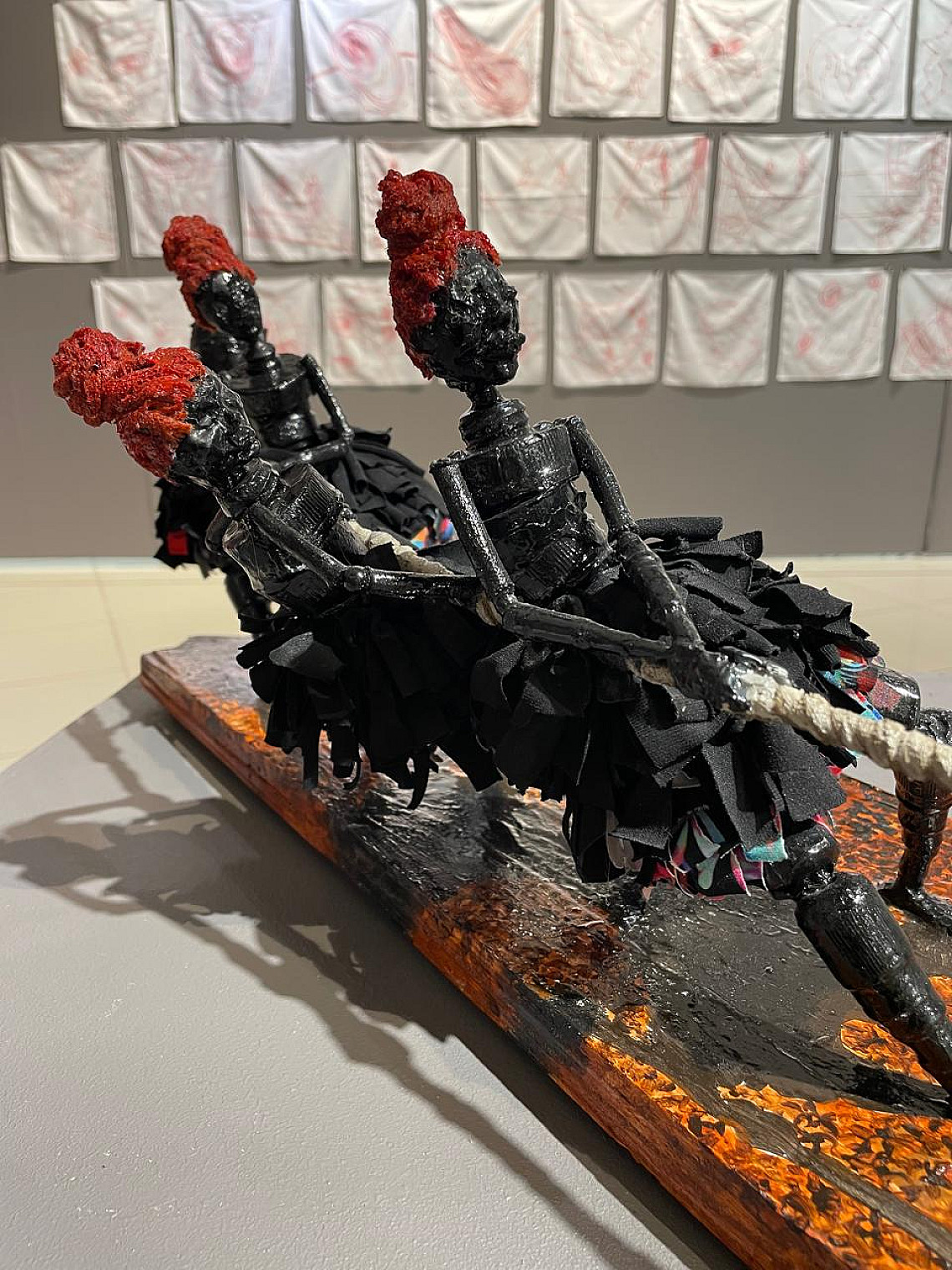
July 26, 2025 - August 22, 2025
274 Preller Street, Muckleneuk
Place & Practice: Collective Voices from Ellis House foregrounds the significant role of collective artmaking within the evolving contexts of urban peripheries. Presented at the UNISA Art Gallery in partnership with artists from Ellis House Art Building, Place & Practice emphasizes diverse artistic perspectives, particularly the navigation and response of artists to their immediate social and cultural environments and situates urban artist studios as vital spaces that illuminate the interplay of marginality, informality, and the unique socio-cultural dynamics characterizing urban living.
By focusing on the divergent experiences and conceptual frameworks emerging from Johannesburg’s inner city, the exhibition highlights Ellis House as more than a physical structure; it is a dynamic studio environment where artists engage collaboratively, interrogate their surroundings, and collectively generate new cultural insights. Featuring works by artists such as Phumzile Buthelezi, Lehlogonolo Masoabi, Senzeni Marasela, Cassius Khumalo, and Belmiro Jemusse, Place & Practice explores varied artistic methodologies, emphasizing the artists’ distinct creative processes in painting, drawing, printmaking, sculpture, and relational aesthetics.
Drawing from the rich history of pioneer art centres in South Africa, such as Rorke’s Drift and Polly Street, the exhibition highlights UNISA’s recognition of the importance of art centers as incubators for cultural innovation, intercultural dialogue, and the expression of local identities through the amplification of marginalized voices by providing artists from the urban periphery with platforms to articulate perspectives and address critical issues surrounding womanhood, cultural appropriation, evolving art technologies, and the shifting imagery of urban life
Place & Practice purposefully highlights the Department of Art and Music’s commitment to the transformation of the curriculum through engagements with artists employing multimodal ways of artmaking as a means of connecting with our larger, unrepresented art community in efforts to expand our methods of knowledge production and finding noteworthy ways in which to enrich our teaching and learning endeavors that results in the advancement of art education at UNISA and the inclusion of marginalized voices and perspectives in our educational offerings.
The exhibition exemplifies UNISA Art Gallery’s dedication to direct engagement with African artists, reinforcing the institution’s role as an accessible cultural epicenter actively contributing to the broader decolonial project within African arts discourse. By intentionally broadening audiences through strategic collaborations and targeted interventions, Place & Practice demonstrates UNISA’s ongoing commitment to enhancing art education, fostering inclusive knowledge production, and nurturing meaningful relationships within the broader African art ecosystem.
ARTICLES